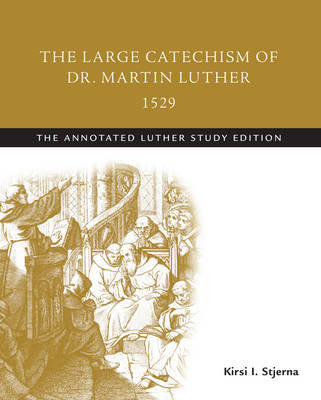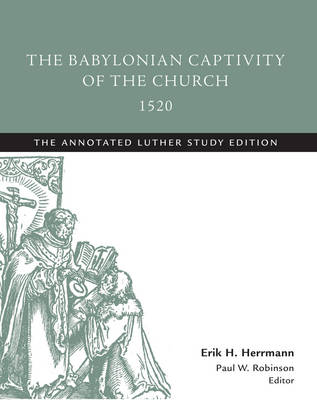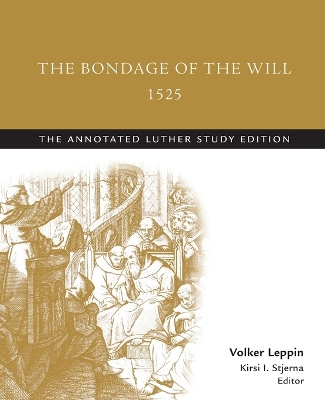Annnotated Luther
3 total works
The Large Catechism of Dr. Martin Luther, 1529
by Martin Luther and Kirsi I. Stjerna
Published 1 June 2016
With great detail, Kirsi I. Stjerna introduces and annotates Luther's Large Catechism, which the reformer offered as a radical reorientation in the matters of theology and spirituality. After diagnosing what appeared to him as his church's failures to provide proper spiritual care, Luther set out to offer a new compass for religious life. The sweeping reforms he proposed took root primarily through preaching and education as people embraced the new vision and transmitted it to their children. He believed all Christian people-laity and clergy-needed a guide to comprehend the basic biblical, creedal, and sacramental teachings. The order with which Luther proceeds in the Large Catechism is deliberate, with a distinct theological rationale; the Commandments express God's expectations; the Creed proclaims God's promise; the Lord's Prayer translates law and gospel into a personal discourse with God; and the sacraments offer tangible expressions of God's grace and signs to lean on in faith. This volume is excerpted from The Annotated Luther series, Volume 2.
In his The Babylonian Captivity of the Church, Martin Luther set forth a reconsideration of the sacramental Christian life that centered on the word. His thesis is that the papacy had distorted the sacraments with its own traditions and regulations, transforming them into a system of control and coercion. The evangelical liberty of the sacramental promises had been replaced by a papal absolutism which, like a feudal lordship, claimed its own jurisdictional liberties and privileges over the totality of Christian life through a sacramental system that spanned birth to death. Yet Luther, does not replace one tyranny for another; his argument for a return to the biblical understanding of the sacraments is moderated by a consideration of traditions and external practices in relation to their effects on the individual conscience and faith. This volume is excerpted from The Annotated Luther series, Volume 3. Each volume in the series contains new introductions, annotations, illustrations, and notes to help shed light on Luther's context and interpret his writings for today.
In autumn 1525, Luther wrote The Bondage of the Will as a response to humanist and theologian Erasmus of Rotterdam's On Free Will. Luther's treatise is important on four accounts: First, Luther wanted to show his own humanist education. Second, against Erasmus, who had maintained that the question of free will could not be decided just on the basis of the Bible, Luther stressed the clarity imbedded in Scripture. Third, Luther stressed that his denial of the free will pertained to the issue of salvation, while in other areas of life not relevant for this fundamental existential matter, free will could be acknowledged. Finally, he introduces the distinction of the revealed and the hidden God to make clear that a Christian must focus on God as shown in Jesus Christ rather than speculating about God's potency in general. Luther's argument on the matter of the bound and free will poses a challenge and an invitation for constructive contemporary theology. This volume is excerpted from The Annotated Luther series, Volume 2. Each volume in the series contains annotations, illustrations, and notes to help shed light on Luther's context and to interpret his writings for today.


